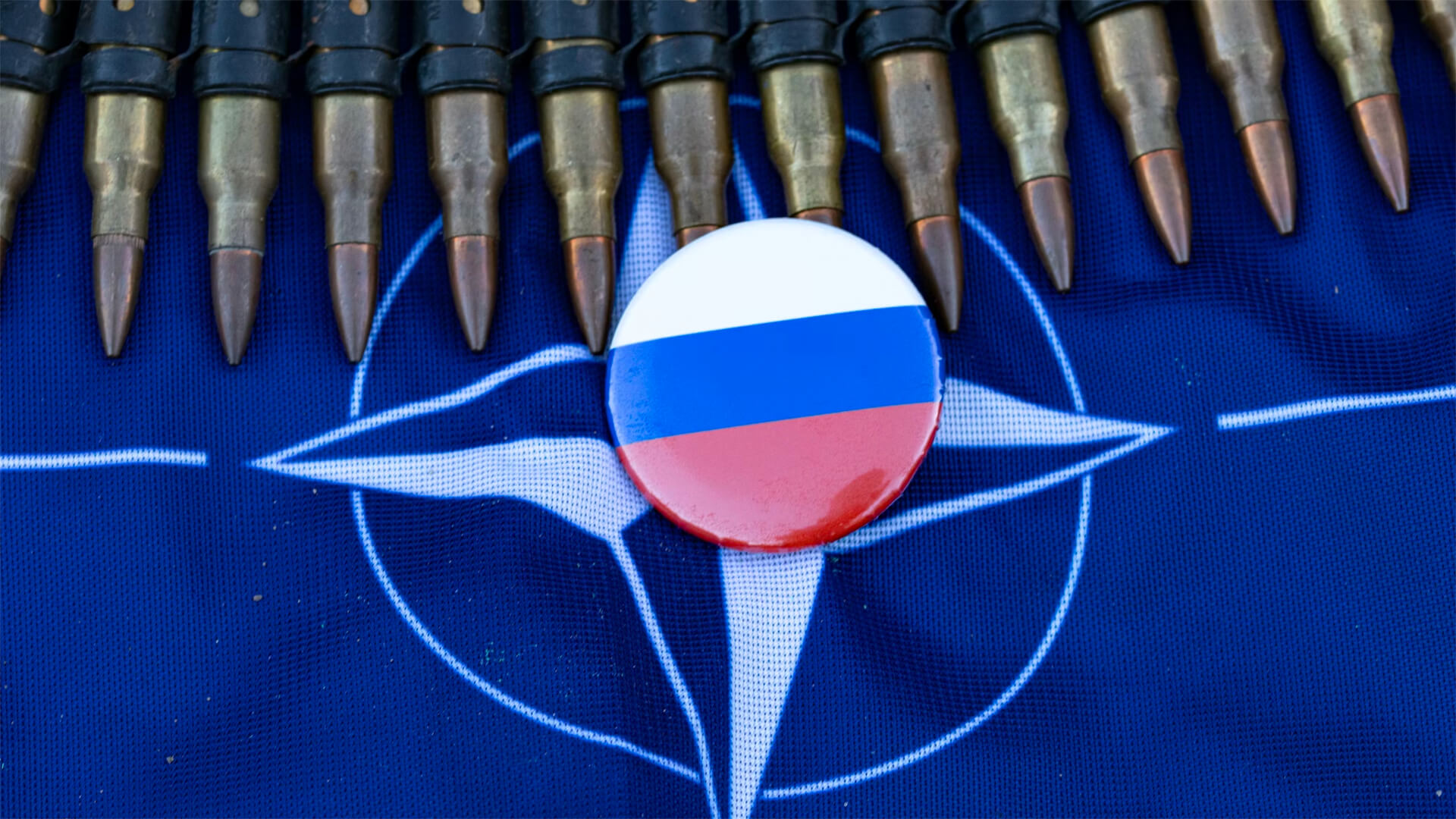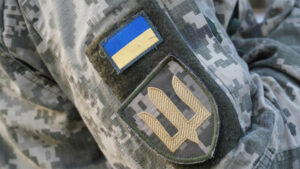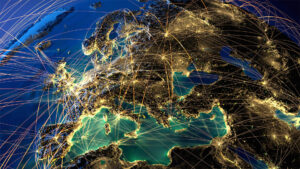Today’s video comes to you from Doubtful Sound in Fiordland National Park.
The European space has historically been disconnected. Between geographical barriers, neutral countries, and bloody history, that shouldn’t come as a surprise. Now that central and western Europe is forming a coalition against the Russians…Putin should be shaking in his boots.
Much of core Europe has already made its stance clear, with German, Portuguese, and Spanish tanks arriving throughout the month. With NATO votes coming up, historically neutral countries like Finland and Sweden are making their alliances clear. And even Turkey can no longer straddle the line and play both sides of this ordeal.
The real kicker here is that the Americans aren’t steering the ship. This is the Europeans doing what’s best for the Europeans. We haven’t seen a coalition this large united against a single power for centuries, and the Russians are in for a rude awakening.
*At 3:50 in the video, Peter mentions that the “French are contributing (to the Ukraine War effort) in a way they haven’t done since WWII” – it’s important to note that the French had boots on the ground in both Desert Storm and Desert Shield
*At the time of posting Finland has already been added to NATO
Prefer to read the transcript of the video? Click here
Here at Zeihan On Geopolitics we select a single charity to sponsor. We have two criteria:
First, we look across the world and use our skill sets to identify where the needs are most acute. Second, we look for an institution with preexisting networks for both materials gathering and aid distribution. That way we know every cent of our donation is not simply going directly to where help is needed most, but our donations serve as a force multiplier for a system already in existence. Then we give what we can.
Today, our chosen charity is a group called Medshare, which provides emergency medical services to communities in need, with a very heavy emphasis on locations facing acute crises. Medshare operates right in the thick of it. Until future notice, every cent we earn from every book we sell in every format through every retailer is going to Medshare’s Ukraine fund.
And then there’s you.
Our newsletters and videologues are not only free, they will always be free. We also will never share your contact information with anyone. All we ask is that if you find one of our releases in any way useful, that you make a donation to Medshare. Over one third of Ukraine’s pre-war population has either been forced from their homes, kidnapped and shipped to Russia, or is trying to survive in occupied lands. This is our way to help who we can. Please, join us.
CLICK HERE TO SUPPORT MEDSHARE’S UKRAINE FUND
CLICK HERE TO SUPPORT MEDSHARE’S EFFORTS GLOBALLY
TRANSCIPT
Hey Everyone. Peter Zeihan here coming to you from Doubtful Sound in New Zealand’s Fiordland National Park. Anyway, a lot of things have gone down in the Ukraine space politically, not so much militarily. And I thought it was worth kind of looking at what the big picture is and to understand where we’re going forward, we have to go back. If you go to the world before 1945, the age of European competition, you had shifting alliances because the geography really prevented the area from coalescing into a single entity. So your northern plane, you’ve got the French, the Dutch, the Belgians, the Poles and the Germans who if you know, if there was ever going to be a zone where someone controlled everything, would be them. And so most chapters of history have been one of those powers trying to assert control over the others. You’ve got Scandinavian in the north with fjords and peninsulas and islands, so always fiercely independent and very naval oriented compared to everyone else. In the south you’ve got a more occluded coastline with very few navigable rivers of any type. And so you get regional powers who were relatively isolated from the others, but who could really punch above their weight economically because they’re all trade oriented, whether that’s in Spain or Portugal or Italy or the Balkans. It makes for a bit of a mess. And so for most of the half millennia leading up to 1945, it was kind of a war of all against all with shifting alliances here and there. Always changing texture, always changing sides. Then the Americans came in, in World War Two, and the Soviets rose during World War Two become major powers who injected themselves into this competition, encroaching into the rules of the game, because suddenly you had these two outside-ish powers who were determining all the major decisions. And we kind of forgot that Europe was the most blood soaked part of the planet until that point.
Now, with 1990 and the end of the Cold War, the Europeans have been living in a vacation from history where the security paradigms of the Cold War exist without the security threat of the Cold War. You combine that with the late globalization period and the time when pretty much all of the world was open for business and you got a very different sort of environment economically and especially politically. Well, the Russians now are kind of climbing back, clawing out of their post-Soviet hole and attempting to reassert themselves as a major regional power. Whether you believe they’re doing this out of stupid reasons or sane security reasons doesn’t really matter. They’re trying to change the nature of the system for their own long term benefit, and that is forcing countries to do something that they haven’t had to do for decades. Take a side, take a position and form an alliance to counter the Russians.
Now, from the Russian point of view, it’s all about the Americans all the time. And everything that’s going wrong for the Russian can be laid at the Americans feet. But that is to completely ignore the history of Europe, which is that of a series of independent and semi-independent primary secondary powers.
So what is kind of shaking out this week? Well, first and most importantly, the German leopard tanks, mainline battle tanks, have finally reached the war. And so now the Germans have fallen into this position of – we don’t want to be in a leadership position. We know what that has looked like in the past. We understand why everyone was nervous about it. Well, we don’t have a choice. We are the largest economic power in the northern European plain, the largest economic power in Europe. And historically speaking, we have also been the most powerful military force. We have to take a leadership position because if we don’t, this is all going to fall apart and we will be facing the Russians on the plains of Poland. And we know exactly where that leads. And we don’t want that.
This has a lot of depth because the Dutch also on the northern European plain are into the hilt. So are the Poles. The French are contributing in a way we haven’t seen the French contribute to multinational operations since World War Two and even further back technically off the plain in places like Spain and Portugal. Portugal tanks arrive with the German ones and the Spanish ones will be there within a month. So everyone in that kind of strip of what you think of as core Europe is already fully committed and back in the game. Scandinavia is a little bit different here. You’ve got mostly independent cities, states that masquerade as countries, and then Sweden, which has kind of been out of the game for three centuries. By the end of next week, Turkey will have voted on whether or not to let the Finns into NATO’s, and a vote on Sweden will probably go within a couple of months of that. And that means that these two traditionally neutral powers are going to be taking a leadership position in security policy in Europe. And the only issue they care about are the Russians. Now, the Swedes have been out of the game for three centuries after a massive military defeat in what is today’s Ukraine and in the aftermath of World War Two, the Finns were forced into a degree of neutrality where they could chart their own economic course. But on any sort of security decision making, the Soviets had full veto power. Well, that is now gone. And these two countries that have very strong militaries, relative to their size, economically or in terms of population, all of a sudden are the harbingers of the apocalypse when it comes to the Russian point of view of how European security should go, because they are extraordinarily anti-Russian. Every security question that they have ever faced has been framed in the context of what do we do the day the Russians invade? Everything else is around that, and now they’re about to be part of the decision making architecture. That also means that the Turks are coming in from the cold. They’ve been trying to kind of have their cake and eat it, too. But in the last few weeks, they’ve joined the sanctions regime relatively forthrightly and are now no longer an avenue that the Russians can use to evade the sanctions regime, especially when it comes to materials import things like semiconductors. And then finally, of course, there’s the United Kingdom. The United Kingdom was always going to be anti-Russian because it’s a naval power on an island. And any time it looks like a land power in Europe is going to become more potent. They get a little nervous and they want to make sure that the land powers are busy with land issues so they can’t float navies that can challenge London. Well, King Charles was just coronated in his first full state visit to Germany. If there are two countries in the European space that tend to be on opposite sides of all economic and security questions, it’s the United Kingdom and it’s Germany. And the fact that they’re, you know, within sight of one another is something that should turn anyone on the opposite side of that axis to turn the blood cold.
So what we’re seeing here for the first time, not in decades, but in centuries, is everyone in Central and Western Europe at the same time coming together to form a broad coalition against a single power. We haven’t had that since Napoleon, if you want to get technical, we haven’t had that since the Treaty of Westphalia. And the Americans, while they are a part of all of this, are not steering this part of the equation. This is the Europeans doing what makes sense to the Europeans. And if I were the Russians, I’d be very concerned about that.








